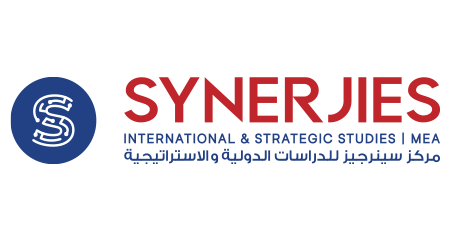In our age of unprecedented information accessibility, information consumption had undoubtedly and tremendously surged. And quite normally that state of information exposure and consumption is especially true in times of great uncertainty like the times we are in at the moment because of the pandemic, coronavirus.
However, and despite of the aforementioned unprecedentedness, most of the information the global citizen is currently consuming is predominantly about either the medical or economic aspects and implications of the coronavirus. There is an almost consensual silence on the political aspects of the pandemic. Maybe that’s because of the conviction that political analysis can wait particularly because the layman, the regular joe as always referred to, is more interested in the economic aspects that have the potential to affect his everyday and social-economic status as well as in the medical aspects that is the inherent nature of the whole problem.
Hence, It’s very due to try unpack the political components of the evolving pandemic situation. Here are some immediate political implications:
- The Brutal exposition of the failure of multi-literalism in its different forms and various levels. First and foremost, we have the historic decay in American leadership of the free world or any world in fact. No doubt, that had been set in motion with the rise of trump to power when he moved away from multi-literalism in most of the key areas, but still witnessing the US seizing shipments of medical masks destined to other countries even allies ( France and Germany) is a new low. In fact, many countries are drawn to this masks war. For example, the Czech Republic seized a shipment of medical masks when it was in course to Italy and Turkey as well seized a shipment of ventilators on course to Spain. It’s the neo- piracy that we are witnessing firsthand and would prove challenging to take it off any post-coronavirus IR calculus and even on the people-to-people level. Second, we have the painful failure of the security council to issue a resolution co-ordinating the global response or putting out guidelines for it because of a feud between the us and China over the wording of with the US insisting that the resolution blames China for the spread of the virus. It’s a normal prognosis of the American president reference to the pandemic as the Chinese virus. Third, the NATO is as well reeling from the pandemic with the weight of not only the previously mentioned seizures but as well the from the United-lateral American decision to impose travel restriction to and from Europe without consulting with the European allies. The French president had made known his concern over that decision. Fourth, maybe the most hard-hit multi-lateral institution is the EU. Not only because of the aforementioned seizure of medical aid shipment to Italy by the hands of a fellow EU member but more importantly because in these rough times, Italy turned to China and Russia for help while other EU members weren’t offering help. Also, the decision of borders closure was detrimental for the legitimacy of the EU as a bloc.
- Distorting the balance between public safety and personal privacy. Countries in their efforts to contain the pandemic, deploy the surveillance tools they have posing a threat to civilian privacy. In fact, that surveillance effort threaten to distort the balance between public safety and personal privacy on a global scale. Here are some key examples to give a picture of the current situation of the matter. In Italy, authorities are accessing the locations of citizens through their mobile phones to determine whether people are obeying a government lockdown orders and the typical distances they move every day. In South Korea, government agencies are using CCTV footage, smartphone location data and credit card records to help track the recent pathways of patients to sort out virus transmission chains. It’s very crucial to note that people standing on that side of the argument aren’t apologetic or view it as a violation but rather as a necessity. For example, Mila Romanoff, data and governance leader for United Nations Global Pulse, a U.N. program that has studied using data to improve emergency responses to epidemics like Ebola and dengue fever said “in emergencies like pandemics, privacy must be weighed against other considerations, like saving lives and we need to have a framework that would allow companies and public authorities to cooperate, to enable proper response for the public good,”. For her the way out of the predicament of potential privacy violation is governments making sure that the collection and use of data to only what is needed . “The challenge is,” she added, “how much data is enough?” And that exactly the problem with opening up a matter of principle like the right to privacy to subjective judgements.


